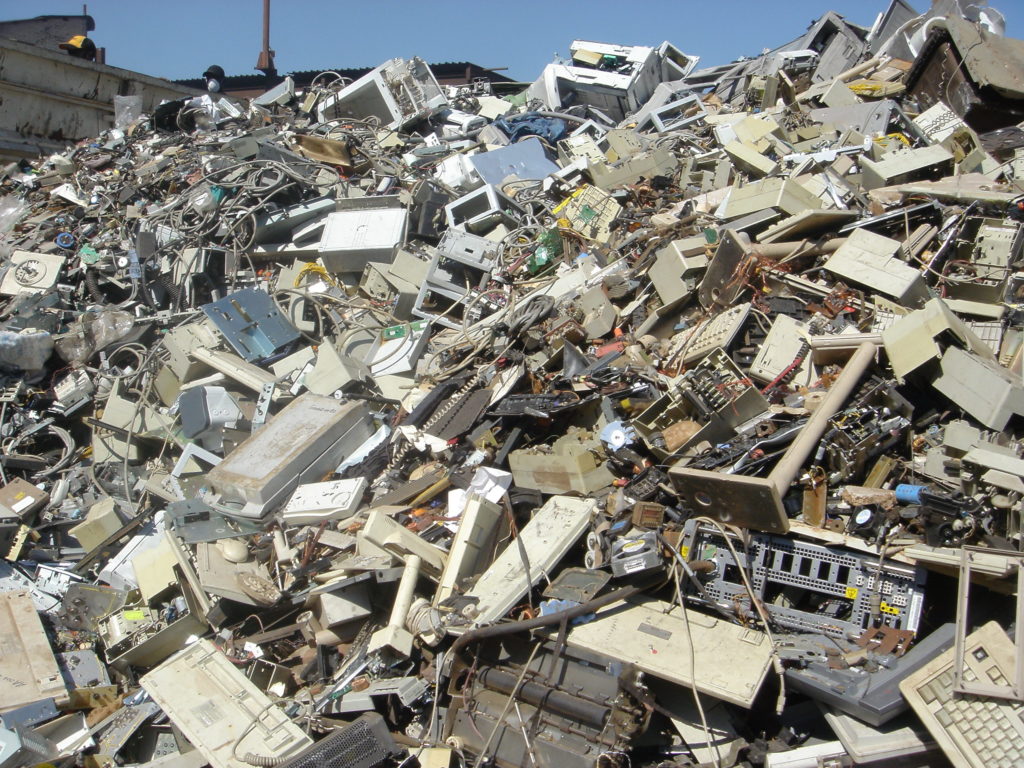An e-waste compensation policy project that will support an environmentally friendly collection and treatment of Li-ion batteries and flat panel displays in Nigeria has commenced.

The initiative was kicked off by a team of environmental organisations at a virtual session on Tuesday, May 11, 2021.
Tagged “E-waste compensation as an international financing mechanism in Nigeria” or ECoN, the scheme is an 18-month pilot project funded by the German PREVENT Waste Alliance and is being jointly implemented by Oeko-Institut e.V. (Germany), Closing the Loop (Netherlands), SRADev (Nigeria), Hinckley Group (Nigeria), and Verde Impacto (Nigeria).
The ECoN project aims to expand a business model known as “waste compensation”, a financing mechanism that funds sustainable collection and treatment of e-waste from countries where such type of waste is often mismanaged.
Based on the notion of “buy one new device, fund the collection of one scrap device”, waste compensation has been widely adopted and, in early 2020, recognised as a green (or “waste-free”) procurement solution for phones, laptops and tablets. The pilot aims to expand that product range to include batteries and monitors. An opportunity is created for the electronics industry and its customers to participate in the project.
The project aims to collect and soundly recycle 20 tonnes of batteries and monitors, while strengthening the local recycling sector in Nigeria. It also aims to attract launching customers for waste compensation of monitors or batteries, and to have the compensation of monitors or batteries certified by an independent eco-label.
“If effective mechanisms for batteries and monitors can be piloted and demonstrated through the project, this could be scaled as a funding mechanism in many other countries and can also be used as a blueprint for developing local policies and financing instruments in countries like Nigeria. This is a necessary, innovative first step towards establishing a long-term sustainable, inclusive e-waste recycling in partner countries. Finally, for the effective application of e-waste comparison criteria, a broad acceptance by national and international civil society is key,” the promoters said.
Part of the goal of the project is to deliver on the growing global demand for more sustainable consumption of electronics, while strengthening the e-waste recycling sector in Nigeria. The project target groups include electronics industry and users of electronics, e-waste recycling companies and service providers, national and international decision-makers.
On why the pilot project is coming to Nigeria, the promoters stated that e-waste management in the country is infamous for heavy pollution and human health risks. It is generally accepted that sustainable recycling is not profitable in the given context.
Expected solution, according to them, is to create an additional source of income that can be used to finance sustainable recycling practices.
Activities to be carried out include research and development of pilot treatment options including funding mechanisms for two critical e-waste waste streams: lithium-ion batteries and flat panel displays.
They stressed that locally adapted techniques are needed to recycle batteries and screens in Nigeria and other countries as these fractions pose a major environmental problem, including end of life batteries resulting from solar projects.
The project will investigate, develop and implement effective, environmentally friendly, inclusive solutions. Furthermore, the informal recycling sector will be involved e.g. for collection and possibly further activities in disassembly and proper disposal of fractions of the electrical devices. By integrating the informal sector, a high local added value is achieved.
The PREVENT Waste Alliance serves as a platform for exchange and international cooperation. Organisations from the private sector, academia, civil society and public institutions jointly engage for a circular economy. The PREVENT members contribute to minimising waste, eliminating pollutants and maximising the reutilisation of resources in the economy worldwide.
They strive to reduce waste pollution in low-and middle-income countries and work together for the prevention, collection, and recycling of waste, as well as the increased uptake of secondary resources. This project was selected in a call for innovative and scalable solutions to build a circular economy. The PREVENT Waste Alliance was launched in 2019 by the German Federal Ministry for Economic Cooperation and Development.
